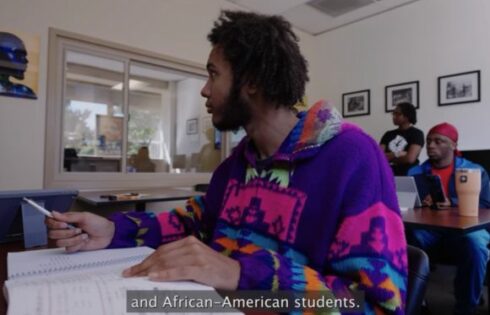
A federal judge ruled yesterday that the state of Arizona violated students’ constitutional rights by banning Mexican-American studies classes in the Tucson school system.
Judge A. Wallace Tashima said the state law passed in 2010 was a violation of the First and Fourteenth Amendments, according to the Huffington Post.
Previously, the Ninth Circuit Court of Appeals opened the door to a legal challenge of the law by noting it was “government-sanctioned viewpoint discrimination” and “overly broad in violation of the Due Process Clause.”
“We won on all points,” said Richard Martinez, a lawyer representing the plaintiffs. “It speaks to the importance of the judiciary and protecting everyone against racial discrimination.”
Part of the seven-year-old law’s rationale (passed by the GOP-majority legislature) was that the Mexican-American studies course “taught Latino students they were historically subjugated and […] to ‘hate other races.”
However, Judge Tashima’s ruling slammed Republicans — former Superintendent of Public Instruction Tom Horne and his successor John Huppenthal in particular — “for failing to observe a single class in action and for assuming that MAS teachers would hide their allegedly subversive agendas in the presence of public officials.”
A series of anonymously posted and racially-charged blog comments from Huppenthal played a role in cementing Tashima’s opinion that the Republican officials acted with “racial animus” ― the legal term for an intent to racially discriminate. Huppenthal called for the elimination of Spanish from public life, with the exception of a limited number of words on Mexican restaurant menus, and compared Mexican-American studies teachers to the Ku Klux Klan.
“Huppenthal’s blog comments provide the most important and direct evidence that racial animus infected the decision to enact A.R.S. § 15-112,” Tashima’s ruling reads, referring to the ethnic studies statute. “Several of his blog comments convey animus toward Mexican-Americans generally.”
“Huppenthal’s usage of pseudonyms also shows consciousness of guilt,” Tashima added. “Had Huppenthal, a public official speaking in a public forum on a public issue, felt that his inflammatory statements were appropriate, he would not have hidden his identity.”
The 2010 ethnic studies law was unusual, Tashima’s ruling states, because it targeted a single curriculum in a single district ― a problem that could have been resolved locally if it bothered state education officials. It was also possible to address Arizona Republicans’ complaints about allegedly biased or partisan materials under existing law, the ruling said
A hearing will determine how to enforce Tashima’s judgment within the next three weeks.
MORE: Court cites student-censorship ruling to overturn Arizona’s ‘ethnic studies’ ban
MORE: Prof gets over $140K to ‘facilitate conversations’ about Mexican-American obesity
Like The College Fix on Facebook / Follow us on Twitter
IMAGE: Shutterstock




Please join the conversation about our stories on Facebook, Twitter, Instagram, Reddit, MeWe, Rumble, Gab, Minds and Gettr.